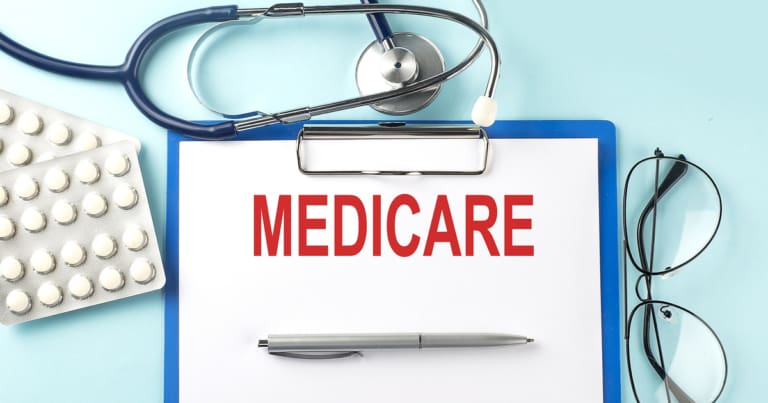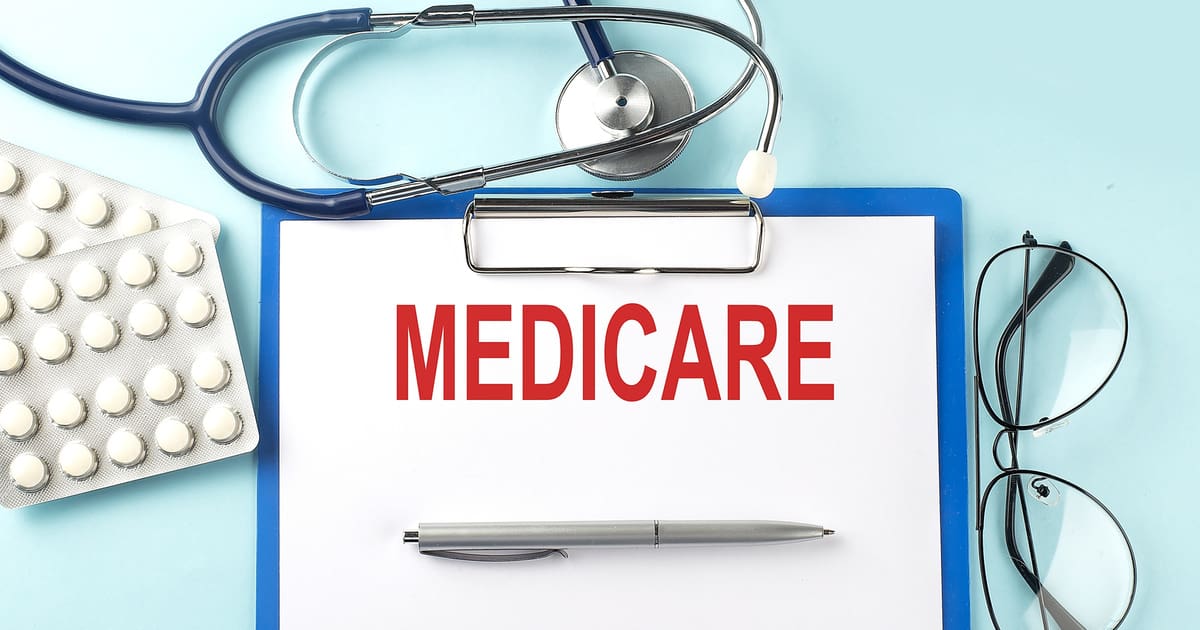In July 2025, the Centers for Medicare and Medicaid Services released the 2026 Medicare Physician Fee Schedule Proposed Rule (Proposed Rule). This article highlights key provisions that may affect allergy practices’ operations and reimbursement. To assist practitioners in evaluating the potential impact, the Advocacy Council has developed a spreadsheet that compares the 2025 final reimbursement rates and Relative Value Units (RVUs) to those proposed for 2026. The figures presented do not reflect geographic adjustments. Please note these are proposed policies only, and the Advocacy Council will be submitting comments to CMS in response to the Proposed Rule.
Two conversion factors
For the first time in the history of the Medicare Physician Fee Schedule, CMS is proposing two conversions factors. For 2026, CMS seeks to increase the conversion factors to:
- $33.5875 for items and services furnished by Qualifying Alternative Payment Model (APM) Participants, which reflects a 3.83% increase relative to the 2025 conversion factor
- $33.4209 for all other items and services, which reflects a 3.32% increase relative to the 2025 conversion factor
These figures reflect:
- The MACRA-mandated payment updates (0.75% for Qualifying APMs and 0.25% for others)
- A +0.55% budget neutrality adjustment
- A temporary (one-year) 2.5% increase to the conversion factor pursuant to the One Big Beautiful Bill Act
Efficiency adjustment
CMS is proposing to apply an efficiency adjustment to the work RVU of non-time-based services. Time-based codes, such as E/M services and telehealth services, are excluded from this adjustment. The proposed efficiency adjustment is -2.5% for 2026, based on the sum of the Medicare Economic Index (MEI) productivity adjustment percentages over the past five years. If finalized, this adjustment would decrease the reimbursement for the codes affected.
Practice expense methodology
CMS is proposing a dramatic change to practice expense methodology that redistributes indirect practice costs from facility-based services to non-facility-based services. This change results in a considerable payment shift away from facility-based physicians and towards office-based physicians:
- Office-based allergists: Estimated +8% increase in total allowed charges
- Facility-based allergists: Estimated -11% decrease in total allowed charges
Note: CMS is not proposing to implement practice expense data from the AMA’s 2023-2024 Physician Practice Information (PPI) survey, due to low response rates and lack of confidence in the results. The Advocacy Council previously expressed concerns about the AMA 2023-2024 PPI survey, which was designed to assist in updating the MEI and the Resource Based Relative Value Scale (RBRVS). The Advocacy Council sent a letter to CMS urging it to not adopt the 2023-2024 PPI survey data for purposes of allergy/immunology.
The Advocacy Council has developed another spreadsheet that compares the 2025 Total Non-Facility RVUs and Total Facility RVUs to those proposed for 2026. Below are notable comparisons; employed allergists and others whose compensation is based on wRVUs will be interested in the first chart, while the second chart is relevant to allergists in all practice types, since it will directly impact reimbursement. In particular, note the significant proposed +/- 20% change in total RVUs for 95165 (antigen therapy services) for non-facility vs. facility.

| Work RVUs (impacted by efficiency adjustment) | ||||
|---|---|---|---|---|
| CPT Code | Description | 2025 Final wRVUs | 2026 Proposed wRVUs | Percentage Change in wRVUs |
| 94060 | Evaluation of wheezing | 0.22 | 0.21 | -4.6% |
| 95076 | Ingest challenge ini 120 min | 1.50 | 1.46 | -2.7% |
| 95079 | Ingest challenge addl 60 min | 1.38 | 1.35 | -2.2% |
| 95180 | Rapid desensitization | 2.01 | 1.96 | -2.5% |
| Total RVUs (impacted by practice expense and efficiency adjustment) | |||
|---|---|---|---|
| CPT Code | Description | Percentage Change in Non-Facility RVUs | Percentage Change in Facility RVUs |
| 94010 | Breathing capacity test | +8.5% | N/A |
| 95165 | Antigen therapy services | +20.9% | -20.0% |
| 95076 | Ingest challenge ini 120 min | -2.9% | -16.9% |
| 95079 | Ingest challenge addl 60 min | -3.5% | -16.8% |
| 95180 | Rapid desensitization | -3.3% | -17.1% |
| 99202 | Office o/p new sf 15 min | +4.2% | -12.1% |
| 99203 | Office o/p new low 30 min | +4.8% | -12.2% |
| 99204 | Office o/p new mod 45 min | +5.5% | -12.0% |
| 99205 | Office o/p new hi 60 min | +6.3% | -11.6% |
| 99211 | Off/op est may x req phy/ghp | +2.9% | -11.5% |
| 99212 | Office o/p est sf 10 min | +4.7% | -11.4% |
| 99213 | Office o/p est low 20 min | +3.3% | -13.7% |
| 99214 | Office o/p est mod 30 min | +4.7% | -13.1% |
| 99215 | Office o/p est hi 40 min | +6.3% | -12.1% |
| G2211 | Complex e/m visit add on | +8.3% | -10.4% |
| G2212 | Prolong outpt/office vis | +6.3% | -10.9% |
Direct supervision
Medicare direct supervision rules require “incident to” services performed by clinical staff to be under the direct supervision of a physician, which historically meant that the physician was required to be immediately available on-site. During the COVID-19 public health emergency, and extended thereafter, CMS relaxed the direct supervision of clinical staff requirement, allowing the supervising physician/practitioner to be immediately available using virtual real-time audio/visual technology.
Now, CMS is proposing to permanently adopt the broader definition of direct supervision allowing the supervising physician/practitioner to provide such supervision through real-time, audio/visual technology for most incident to services (except for those with global surgery indicators of 010 or 090 that are not applicable to allergists). This aims to maintain flexibility in care delivery while addressing the needs of specific patient populations and practice settings. If the proposal is adopted, the following allergy services would fall under this broader definition:
| CPT Code | Description |
|---|---|
| 95165 | Preparation and provision of antigens for allergy immunotherapy |
| 95115/95117 | Allergen immunotherapy – single injection/multiple injections |
| 94010 | Spirometry |
| 95004 | Allergy percutaneous test(s) (scratch, puncture, prick) |
| 95044 | Allergy patch or application test(s) |
| 95076/95079 | Ingestion challenge test – initial 120 minutes of testing/each additional 60 minutes of testing |
| 95180 | Rapid desensitization procedure |
Telehealth
CMS is proposing to permanently eliminate frequency limits for subsequent inpatient visits, subsequent nursing facility visits, and critical care consultations. CMS is also proposing to no longer permit teaching physicians to use real-time audio/visual technology to supervise when the resident furnishes telehealth services.
E/M visit complexity add-on
CMS is proposing to make a minor change to HCPCS code G2211 (complexity add-on code) to allow it to be billed with the home or residence, new and established E/M visits code family (CPT codes 99341,99342, 99344, 99345, 99347, 99348, 99349, 99350). Currently, the code is limited for use with office/outpatient E/M services.
Policies to improve prevention and management of chronic disease
CMS is seeking to better understand and lower chronic disease rates, including focusing on nutrition, physical activity, healthy lifestyles, over-reliance on medication and treatments, the effects of new technological habits, environmental impacts, food and drug quality and safety. Given this focus, CMS is broadly soliciting feedback on how the agency could enhance the prevention and management of chronic disease.
Payment policy for software-based technologies
CMS is also recognizing the rapid developments in the use of software-based technologies to support clinical decision-making in the outpatient and physician office settings, which CMS refers to as software as a service (SaaS). CMS has observed wide variations in the purported costs of clinically similar SaaS technologies and believes it is not well addressed in the current PFS. CMS is requesting comments on how the agency should consider allowing for payment of SaaS and artificial intelligence applications.
The final 2026 Medicare Physician Fee Schedule rule is expected to come out in early November, and you can count on the Advocacy Council to provide you with a timely summary of the important changes and the impact on allergists.
The Advocacy Council – ADVOCATING FOR ALLERGISTS AND THEIR PATIENTS.



